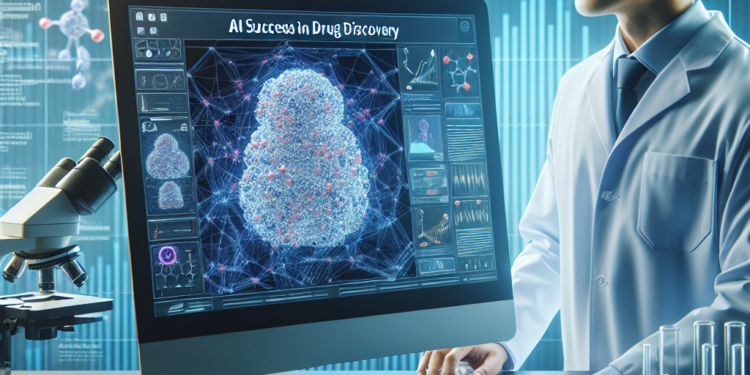Artificial intelligence (AI) has revolutionized many industries, and drug discovery is no exception. AI has significantly increased the speed and efficiency of identifying new drugs, leading to successful treatments for a variety of diseases. In recent years, AI has become a powerful tool in drug discovery, helping researchers analyze vast amounts of data and predict how certain compounds will behave in the human body. This has led to faster and more effective drug development, bringing life-saving treatments to patients more quickly than ever before.
One of the biggest challenges in drug discovery is the sheer amount of data that researchers have to sift through. Drug development involves analyzing thousands of chemical compounds to find the ones that are most likely to effectively treat a specific disease. This process can take years and cost millions of dollars, with no guarantee of success. However, with the help of AI, researchers can now analyze massive amounts of data in a fraction of the time it would take a human to do so. This allows them to quickly identify promising compounds and move them through the drug development process much more efficiently.
AI techniques such as machine learning and deep learning are particularly well-suited for drug discovery. These technologies can analyze complex datasets and identify patterns that humans might miss. For example, researchers can use AI algorithms to study the structure of a protein involved in a disease and predict how certain compounds will interact with it. This information can then be used to design new drugs that target the protein more effectively. By using AI, researchers can speed up the drug discovery process and increase the chances of finding successful treatments.
One of the key advantages of using AI in drug discovery is its ability to personalize treatments for individual patients. Instead of taking a one-size-fits-all approach, researchers can use AI to analyze a patient’s genetic makeup and other factors to determine the best treatment for their specific condition. This personalized medicine approach is revolutionizing healthcare, allowing doctors to tailor treatments to each patient’s unique needs. By using AI to identify the most effective drugs for each individual, doctors can improve patient outcomes and reduce the risk of side effects.
AI is also helping to uncover new uses for existing drugs. Researchers can use AI algorithms to analyze data from clinical trials and identify potential off-label uses for drugs that have already been approved by regulatory agencies. This can save time and money in the drug development process, as researchers can repurpose existing drugs for new indications without having to start from scratch. By leveraging AI to identify new uses for existing drugs, researchers can bring treatments to patients more quickly and efficiently.
In addition to speeding up the drug discovery process, AI is also helping to improve the safety of new drugs. By using AI algorithms to predict how certain compounds will behave in the human body, researchers can identify potential safety concerns before a drug is tested in clinical trials. This allows them to design safer drugs and reduce the risk of adverse reactions in patients. By using AI to improve drug safety, researchers can speed up the drug development process and bring new treatments to market more quickly.
Overall, AI has been hugely successful in drug discovery, leading to breakthrough treatments for a wide range of diseases. By analyzing vast amounts of data and identifying promising compounds, researchers are able to speed up the drug development process and bring new treatments to patients more quickly than ever before. AI is also helping to personalize treatments for individual patients and improve drug safety, revolutionizing the way that drugs are developed and bringing hope to millions of people around the world. As AI technology continues to advance, the future of drug discovery looks brighter than ever.












